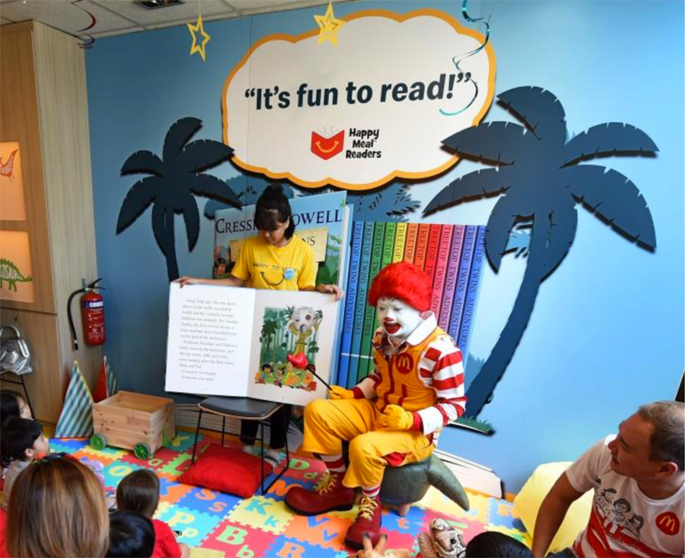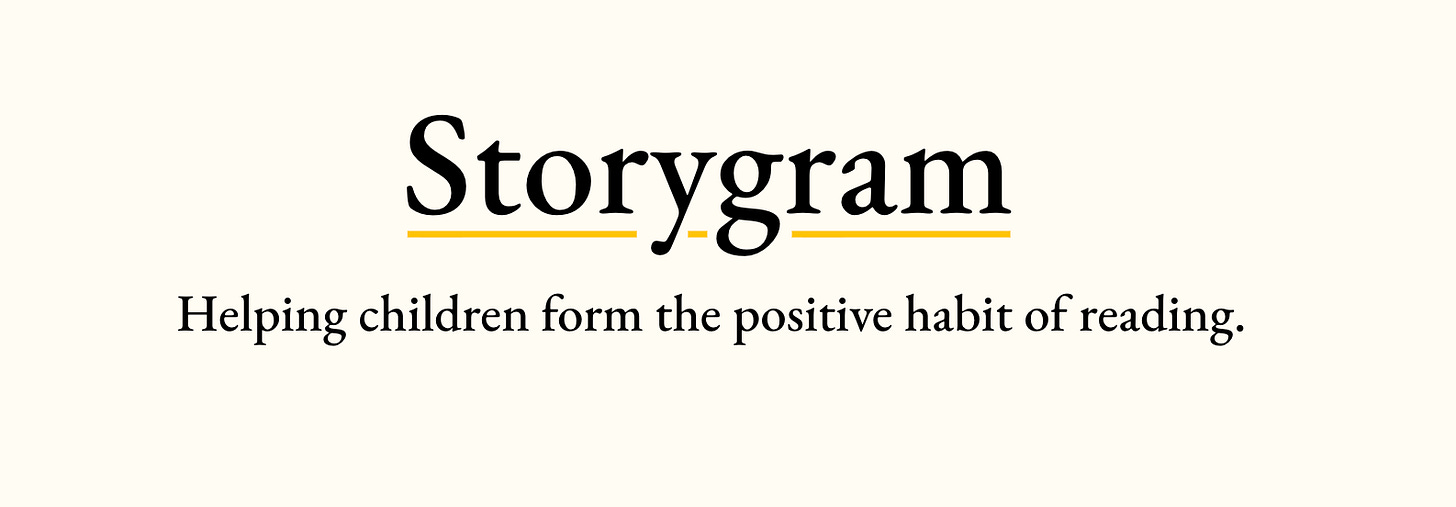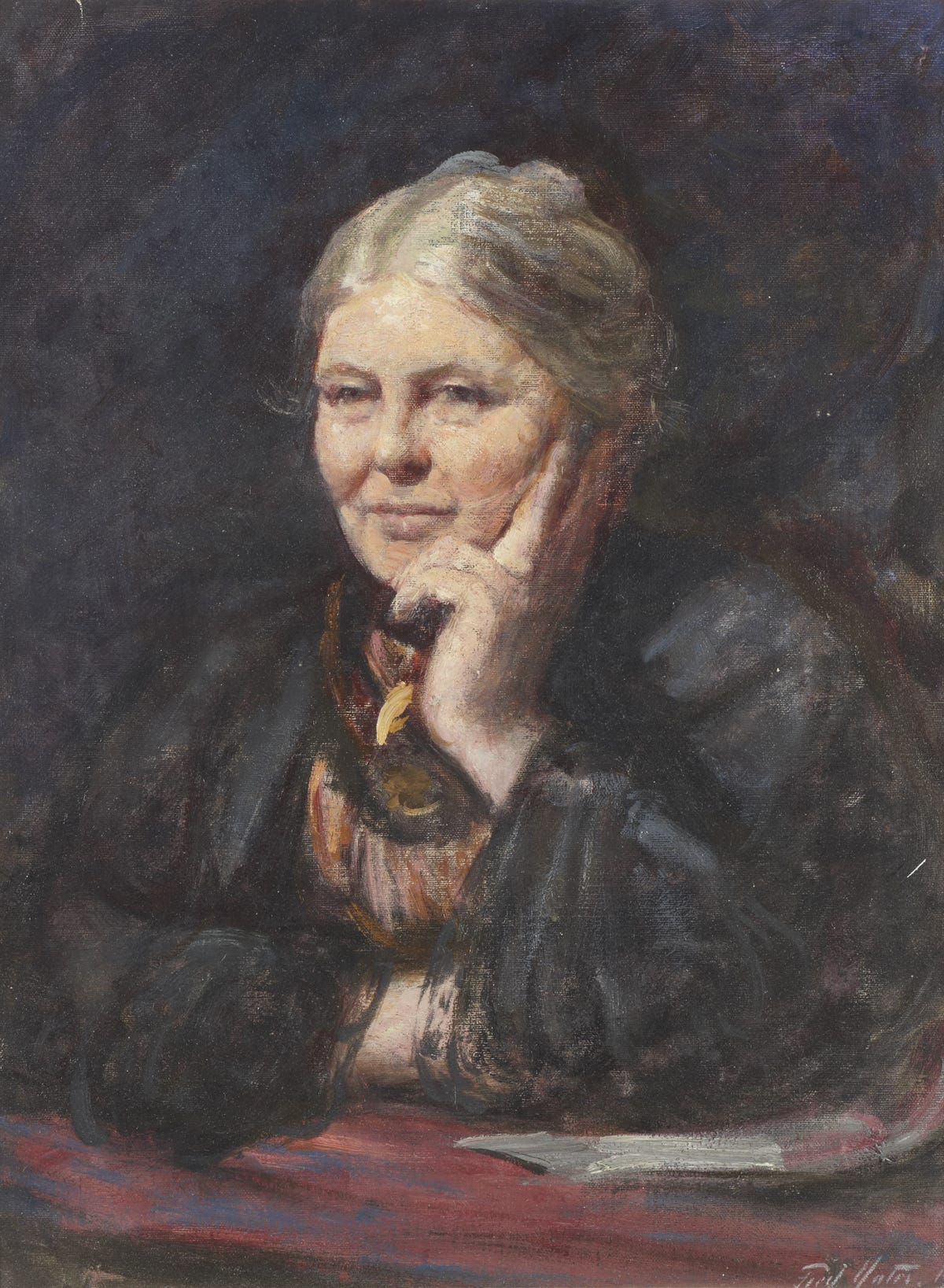Pay Attention
Friday Footnotes #15
Welcome to Friday Footnotes, a weekly newsletter from Storygram Parents. It’s even got pictures 🙌
Each week I touch on reading, parenting, motivation, children’s books, education, writers, and whatever else catches my attention. Enjoy!

This week’s footnotes 🧐
The Habit of Attention
Recently, I was introduced to Charlotte Mason, the brand influencer attached to this episode of Friday Footnotes1. I’m sure many readers are aware of her:
I’ll be honest: reading a book with the title, Habits: The Mother’s Secret to Success, was not how I imagined my life panning out. I’ve never been cool exactly, but this is a new low even for me. Since hitting forty, these things seem somehow to matter more, however.
Also, who doesn’t love finding out a mother’s secret?
Charlotte—ahem, that’s Mistress Mason to you—was a British educator born nearly two-hundred years ago. She believed that carefully developed habits would encourage lasting change (in children and adults). North American private schools and homeschoolers appear to be particularly fond of her ideas.
I have long believed that reading is a habit that leads to enjoyment of reading. Without the habit, it’s unlikely to stick. And so habits are fundamental to my approach with Storygram.

Even at 150 years old, I’ve found Mason’s writing to be clear and helpful.
She likens habits to railway tracks. Essentially, once a habit is developed, a track has been laid down. The action of that habit now run almost effortlessly (and thoughtlessly). Of course, this is equally the case for both good and bad habits, unfortunately.
We are all mere creatures of habit. We think our accustomed thoughts, make our usual small talk, go through the trivial round, the common task, without any self-determining effort of will at all.
To mix a metaphor, once a habit takes root, it takes some effort to drive it off the rails.
Interestingly, Mason presents the foundation of habits with a prescient idea: that developing the habit of attention is the key to growth.
The highest intellectual gifts depend for their value upon the measure in which their owner has cultivated the habit of attention.2
In her day, children weren’t behaviourally addicted to screens3, so in fact the examples she cites appear laughable to modern ears. But the principle is important — it’s about developing the habit of looking with intentionality and curiosity at the thing in front of you.
I heard just yesterday of a man who would regularly visit the National Portrait Gallery, each time looking at just one painting. In fact, each time they returned they would head to the same painting until they felt there was absolutely nothing further that they could draw from it, and only then would they allow themselves to move on to another.
Maybe that’s psychotic.
But how often do we do the opposite, wandering around a gallery, quickly observing painting after painting (trying to get our monies worth) and yet missing the masterful works that painters spent countless hours developing, honing, and crafting into the work that stands before you.
Instead of the habit of attention, we have now developed the habit of capturing and sharing memories, without the least bit of attention involved:
We are no longer guided by our curiosity, but by the mob. Whatever is popular holds our limited attention, and only for a limited time; long enough to capture and move on.
It recently occurred to me that we say pay attention. This seems a fitting phrase because there is indeed a cost involved. If you give your full attention to something, you are like a farmer, carefully preparing a field for a crop over a year. But, if your attention is divided, you are more like a farmer sowing a bit in this field, a bit in another a few miles away. At the end, the harvest is patchy and unfruitful, if you get around to it at all.
To coin a phrase: you reap what you sow.
Attention sits at the bottom of the house of cards. Without it, the habits of thinking, imagining, and a desire for knowledge and excellence — they all fall down.
And, of course, if you cannot pay attention to books, you’ll believe you don’t enjoy reading.
Charlotte Mason’s teachings have given me some food for thought, so I think I’ll come back to them in a future article. What do you think?
Can I ask a favour? 🙏
Please comment, share, or like our articles… it helps the algorithm make good choices 😜
Perhaps you can think of one parent you could send the link to? Thank you so much!
Quote of the week
“A bit of boredom is good for us, so the next time you have a minute to spare, instead of reaching for your phone, be rebellious: Daydream.”
— Christine Rosen, On the Death of Daydreaming
It might seem strange after writing about the importance of attention to drop a quote about the importance of boredom, but I believe both are necessary to a balanced mind.
For my personal take on boredom, you can read I’m Bored: In Defence of Boredom
That’s all for today. Have a wonderful weekend. 😊
Graham
Always make sure that the influencers you choose to work with have stood the test of time. Charlotte Mason definitely has.
Habits: The Mother’s Secret of Success - Charlotte Mason
25% of children display behavioural addiction to smartphones — Kings College London, 2019 (the number is probably significantly higher now - and not just children)




Excellent guidance! Brilliant article.
Yes, our intentional attention is what draws the through-lines in the perspective exercise… and the *daydream* is the vanishing point to which our attention must wander.
Loving your posts!